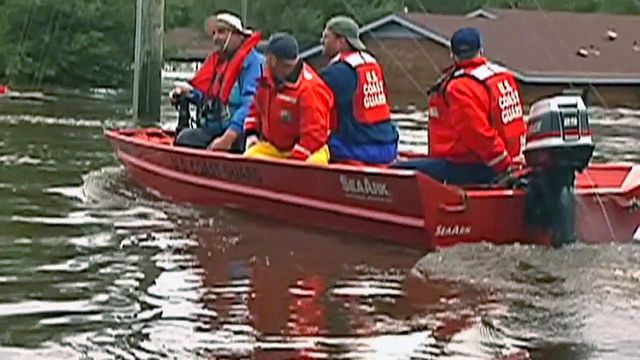NC better prepared for a hurricane than ever before
While storm surge is a coastal issue, flooding can be a problem across North Carolina.
Posted — UpdatedWhile storm surge is a coastal issue, flooding can be a problem across North Carolina.
Most people who die from hurricanes die in flood waters, mostly by trying to drive through flooded roads. But North Carolina leaders say they are more prepared than ever before to help anyone who gets caught in a flood.
In 1999, Hurricane Floyd hit just 10 days after Tropical Storm Dennis. The storm dumped 12 to 20 inches of rain in the eastern part of the state.
Despite the warning and preparations, the state wasn't ready. Floyd's legacy includes 52 deaths and $6 billion in damage. But officials say the storm's legacy also incudes a positive.
"We absolutely have a whole lot more depth of capability than we did during Floyd," said Brian Barnes with NC emergency management.
State emergency management officials said they learned a lot from Floyd's destructive lesson. Since then, the state has rolled out the Viper communication system.
"Everything from the coast guard helicopter in Elizabeth City, to a first responder going to support a local rescue, everybody has the same communication network so they can communicate during disasters to get the speed to the need," said Barnes.
The rescue efforts now include dozens of local law enforcement agencies who collaborate with the state during major disasters, and all departments take part on the same flood and swift water training.
According to Barnes, another major change includes flood awareness training for all national guard soldiers and state law enforcement officers. They also carry life jackets and throw bags, safety tools they did not have before Floyd.
"Flooding is something that happens very rapidly and it is a very unforgiving environment," Barnes said. "In just a few seconds you can get yourself in a really bad position."
While state emergency management officials say the state is more prepared than ever, they still need the public's held to make sure the next natural disaster does not turn into a human tragedy.
"The resources we deploy our goal is to have all of them come home and the public plays a big part of that by not taking unnecessary risk," he said.
• Credits
Copyright 2024 by Capitol Broadcasting Company. All rights reserved. This material may not be published, broadcast, rewritten or redistributed.





